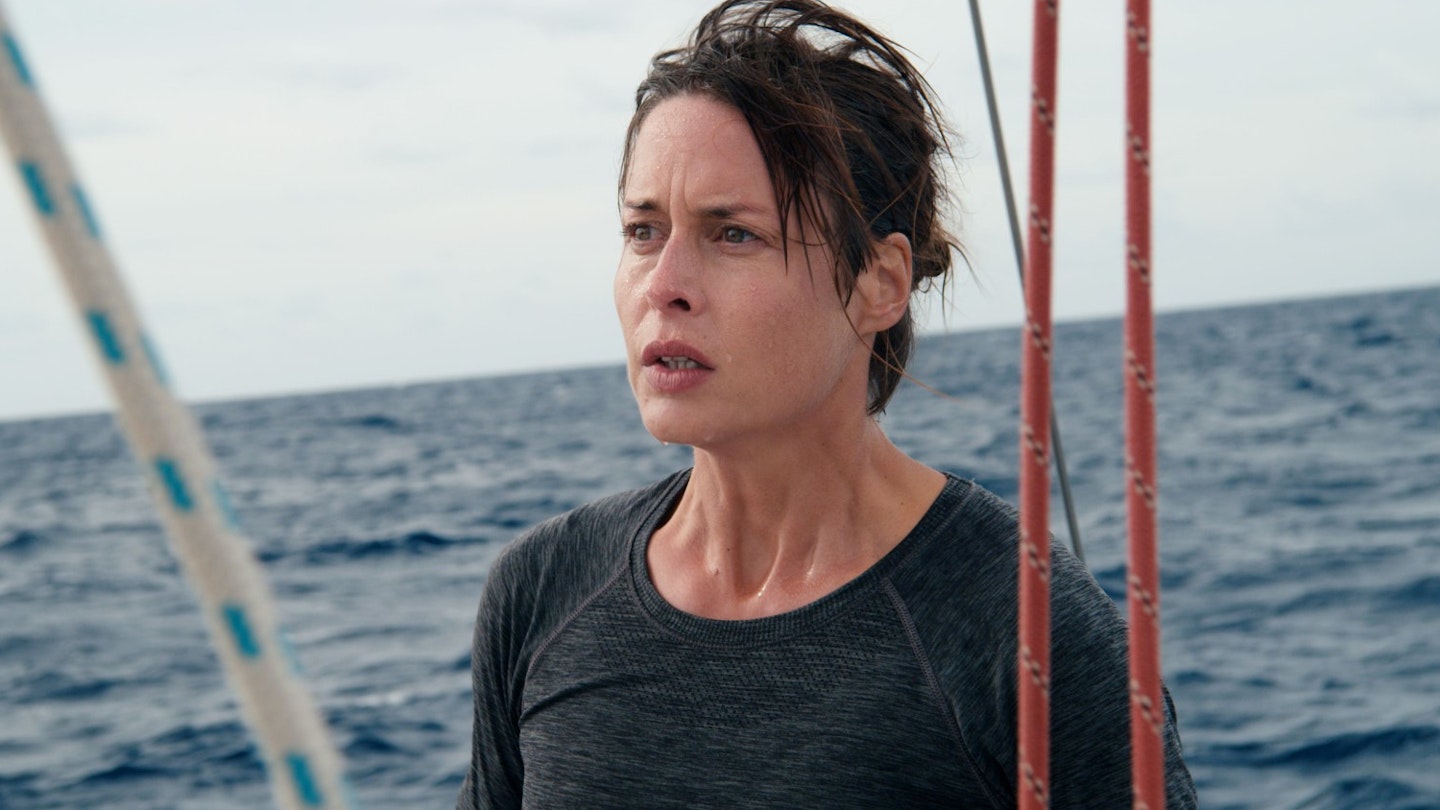Styx is All Is Lost with a conscience. Austrian director Wolfgang Fischer’s film is that rare flick that combines complex thematic meat with well orchestrated, knuckle whitening action. It’s a sea trek that relies on a moral compass as much as a nautical one as lead character Rike (Wolff) faces down an impossible dilemma. As much as it is a battle against the elements, it is also, without ever feeling heavy handed, a compelling allegory for the West’s absolute indifference to the refugee crisis.
For an hour Styx is practically dialogue-free competency porn, as we watch doctor Rike save the day at a road traffic accident, then singlehandedly sail from Gibraltar to the Ascension Island, battling the elements with jaw-dropping aplomb that puts Robert Redford to shame. It’s almost documentary-like in depicting Rike’s handling of her yacht ‘Asa Gray’, while taking time out to read, swim and top up the tan. A nighttime storm shatters the idyll but Rike still keeps her cool as the ship is tossed mercilessly to and fro.
But when she runs into a sinking ship full of refugees, with a boat too small to help them, the film morphs into a morality play. The Coast Guard (who we only ever hear over the radio) tell her to keep her distance, amplifying the film’s idea of the world’s ambivalence towards the dispossessed. Fischer and Ika Kuenzel’s screenplay complicates things even further when one surviving child (a terrific Gedion Oduor Wekesa) boards her yacht. What plays out is tense, full of surprises but beautifully understated. The final moments call to mind the last scene of Captain Phillips, another perilous sea journey, providing a shattering end to a memorable voyage.
